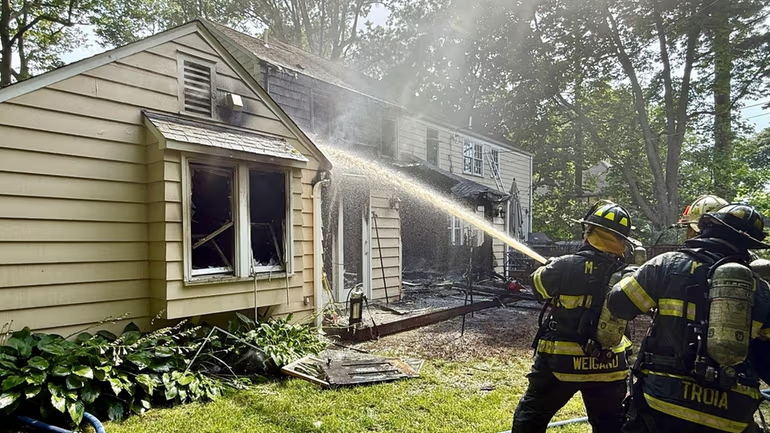 The rancor between the Town of North Hempstead and PSEG LI has now spilled into 2015.
The rancor between the Town of North Hempstead and PSEG LI has now spilled into 2015.
The utility is suing the town, its supervisor, Judi Bosworth, and its superintendent of highways, Thomas Tiernan, for demanding—through an ordinance—that PSEG LI put signs on utility poles that say the poles carry a dangerous substance.
In a suit filed earlier this month in New York’s Eastern District Court, PSEG contends its first amendment rights are being violated by the ordinance and asks that it be annulled and that no enforcement actions be taken against the utility.
The town passed the ordinance last year because it felt the use of a pesticide, Pentachlorophenol (penta), on the poles posed a danger to residents. PSEG LI uses penta as a preservative, a common practice with utility poles to extend their longevity.
The town’s ordinance, adopted in September, required PSEG LI to put four-and-a-half-inch by seven-inch signs on poles, saying: “Notice—This Pole Contains a Hazardous Chemical. Avoid Prolonged Direct Contact With This Pole. Wash Hands Or Other Exposed Areas Thoroughly If Contact Is Made.”
PSEG LI said absolutely not. David Daly, the utility’s president, said during a meeting at Anton Media Group’s headquarters the utility would not be putting the signs on poles.
The penalty for PSEG LI not acting by March 1 is $500 a pole for the first conviction and $1,000 for a second, or subsequent conviction. Not each pole has to carry a sign. For every line of poles, the sign has to go on every fourth one. The ordinance is in effect for poles installed after Jan. 1, 2014.
The ordinance was adopted after PSEG LI, over the objections of the town and residents, installed five miles of 80- and 85-foot poles from Port Washington to Great Neck, replacing poles that were half the size.
The town and residents saw the poles as an eyesore, and at a raucous community meeting with Daly made their feelings known. Daly held his ground, saying the project was necessary to bring the area up to par from an electric transmission standpoint and to better protect it from blackouts.
Once the poles were up, the subject turned to the penta treatments. Bosworth led the anti-penta charge and told the Port News she was not, “overly surprised,” by the lawsuit. “They were not happy we were doing this (the ordinance) and tried to encourage us not to,” she said.
“But we wanted to do something to make sure our residents were aware of the dangers of coming into contact with the penta-treated poles. We were very careful to word the message using the exact warning PSEG has on its website,” Bosworth said.
If the town plans to hang its defense, at least in part, on the PSEG website entry, it may have some difficulty.
The penta entry is contained on a link on the website whose content PSEG says it is “not responsible for” and is offering as a “convenience.”
The entry was written by Mike H. Freeman, who described himself as an “independent wood scientist.” In addition to calling chemicals like penta “toxic” and saying “exposure to them should be minimized,” he said, “incidental contact with treated wooden poles is not generally regarded as a major health risk.”
A representative from PSEG LI did not return a call for comment.
The suit says that the First Amendment is being violated because the ordinance compels PSEG LI to “undertake issue-specific advocacy on behalf of the town.”
The First Amendment guarantees “both the right to speak freely and the right to refrain from speaking at all,” the suit says. The ordinance violates that guarantee by forcing PSEG LI to post signs containing “disputed phrases and accompanying text urging the public to take action,” according to the suit.
PSEG LI also contends its rights to equal protection under the law are being violated. The ordinance singles out utility poles treated with “hazardous chemicals,” but does not regulate similarly treated wood products such as bulkheads, fence posts and railroad ties used in landscaping, the suit says.
Also, the ordinance is “unconstitutionally vague and overbroad,” a violation of the 14th amendment, according to the suit.
The town has 21 days to respond to the suit, which was filed Jan. 15. In addition to relief from the penta ordinance, the action seeks costs and attorneys’ fees.
Bosworth said the town is in the process of reviewing the suit, “but we will be defending the ordinance.”


































